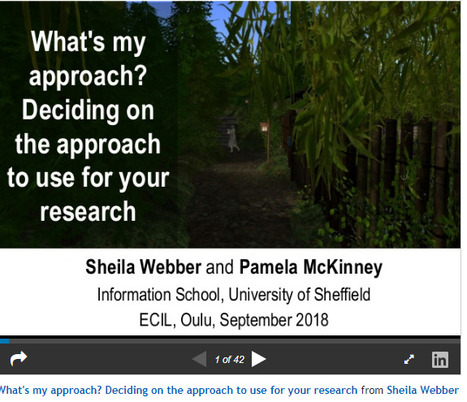Dr Alison Hicks, the newly-appointed Editor-in-Chief of the Journal of Information Literacy and CILIP ILG Library & Information Schools Representative reports on the new bilateral agreement between CILIP and the African Library and Information Association (AfLIA) and an overview of IL research in Africa.
The 30th January marked the signing of a new bilateral memorandum of agreement between CILIP and the African Library and Information Association (AfLIA). The memorandum promises an exciting new platform for the exchange of ideas as well as the establishment of partnerships targeting the development of shared research and practice.
Research and publish the best content.
Get Started for FREE
Sign up with Facebook Sign up with X
I don't have a Facebook or a X account
Already have an account: Login
Literacy in a digital education world and peripheral issues.
Curated by
Elizabeth E Charles
 Your new post is loading... Your new post is loading...
 Your new post is loading... Your new post is loading...
|
|












